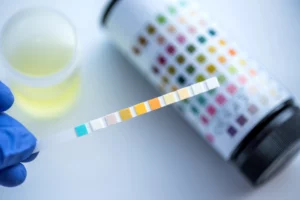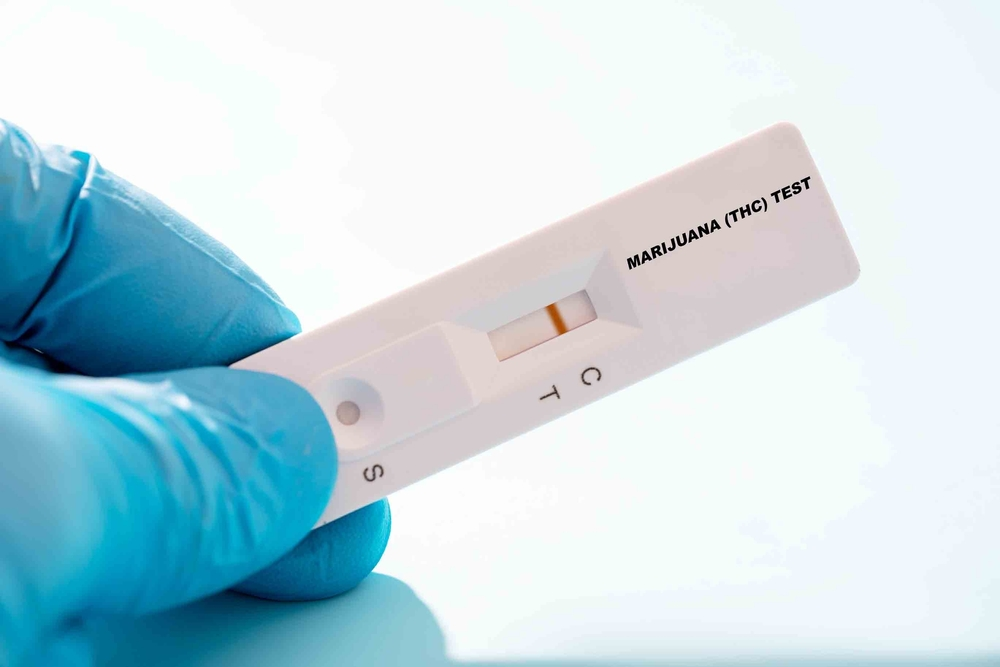THC is the main compound in cannabis that gets you high. Once consumed, THC binds to receptors in your brain that produce that familiar euphoric sensation. The effects of THC depend on how you take it—smoking or vaping provides an almost instant high that lasts 1-3 hours, while edibles can take 30-90 minutes to kick in, and the effects tend to last 4-12 hours.
On average, THC is detectable in urine for 3 to 7 days for infrequent users, 10 to 15 days for moderate users, and 30 to 60 days for chronic heavy users. Blood tests can detect THC for 3 to 4 hours after use. Saliva tests have a detection window of 1 to 7 days. And hair follicle tests can spot THC use for up to 90 days.

Risks of Detoxing from THC on Your Own
Detoxing from THC on your own is a risky business. The greatest risk is relapsing. Withdrawal symptoms can be uncomfortable, and without support, the urge to use more THC may feel overwhelming. In a treatment center, you have the backing of others in your shoes and healthcare experts.
- Physical Effects: Fortunately, detoxing from THC typically isn’t as dangerous as other drugs. Stomach problems and dehydration are the biggest worries. Drink plenty of fluids and have someone check on you.
- Mental Health Challenges: On top of physical withdrawal, many feel anxious or depressed after detoxing. Professional counseling and group support can help you develop coping strategies.
Methods for Detoxing THC From Your Body
For heavy, long-term users, quitting cannabis cold turkey can lead to withdrawal symptoms. Gradually reducing your THC intake over time may make the detox process more comfortable. If you normally consume cannabis several times per day, try cutting back to only once or twice per day for a week or two.
Once you’ve reduced your intake to minimal or no THC, the detoxification process can take 4 to 6 weeks for heavy users. THC is fat-soluble, meaning it binds to fat cells in your body. As you abstain from use, the THC is released slowly from fat cells into your bloodstream until it is fully cleared.
THC Detox and Withdrawal Timelines
The worst of the withdrawals will hit between days 2 and 14 after quitting THC. This is when most psychological and physical symptoms will peak in intensity.
Days 2-3: Early Withdrawal
Around this time, you’ll start to feel the effects of quitting weed. Mild symptoms like restlessness, difficulty sleeping, and changes in appetite are common. You may feel irritable or moody as your body gets used to being without THC.
Days 4-14: Acute Withdrawal
This is when THC withdrawals are most severe. Symptoms like insomnia, loss of appetite, and mood changes intensify. You may experience feelings of anger, depression, or anxiety. Nausea and stomach problems are also common during acute withdrawal. The good news is these symptoms are temporary, even if they don’t feel that way.
2 Weeks and Beyond Post-Acute Withdrawal
Most physical symptoms of marijuana withdrawal will subside within 2 to 4 weeks after quitting. However, some psychological symptoms, like changes in mood, sleep, and appetite, can persist for months. Staying committed to your sobriety is key.

THC Detox Tips
To successfully detox THC from your system, follow these tips:
- Drink plenty of water: Flushing your system with water is key. Aim for 8-10 glasses daily to stay hydrated and help your body eliminate toxins. The more you drink, the faster THC metabolites will leave your body.
- Take hot baths: Soaking in a hot bath can relieve physical discomfort from withdrawal symptoms and help you relax. The heat will also cause you to sweat, releasing THC from your fat cells.
- Eat healthy, balanced meals: Focus on lean proteins, fresh fruits and vegetables, and whole grains. Limit fat and sugar. Healthy eating provides the energy your body needs during detox and can improve your mood.
- Cut back on caffeine: Too much caffeine can exacerbate anxiety, restlessness, and sleep problems. Reduce coffee, tea, and energy drinks until your sleep schedule normalizes. Herbal tea, warm lemon water, or decaf coffee are good alternatives.
- Exercise daily: Exercise releases endorphins to boost your mood and motivation. Aim for 30-60 minutes daily of walking, jogging, yoga, or strength training. Exercise also helps metabolize THC from fat cells.
- Use over-the-counter medications as needed: Ibuprofen, acetaminophen, melatonin, or L-theanine can help relieve withdrawal symptoms like headache, body aches, and sleeplessness.
You Don’t Have To Do This Alone
You don’t have to go through this difficult process alone. At MD Home Detox, our certified experts guide you every step of the way. Call us today at 1 (888) 592-7931 to speak with one of our professionals.
Our goal is to provide you with the necessary resources for overcoming cannabis addiction. We offer personalized evaluations to determine the best course of treatment, medically supervised detoxification to alleviate withdrawal symptoms in a safe environment, and addiction counseling and therapy.
Don’t lose hope – recovery is possible with the right help and support. Our caring staff understands how difficult overcoming addiction can be, and we are here for you anytime you need. Call now to learn more about our personalized recovery plans and to find the treatment option that’s right for your needs.

